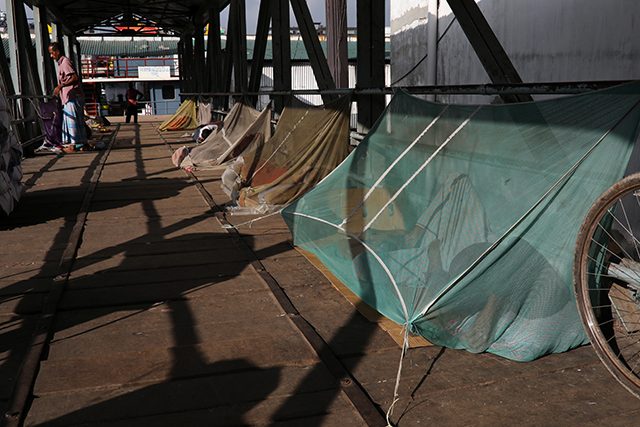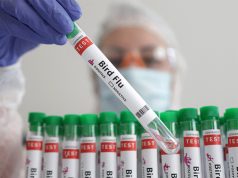
The World Health Organization or WHO shared on Twitter a guide on how to prevent dengue and other mosquito-borne diseases amid the local health agency’s declaration of a “national dengue epidemic” in the Philippines.
The Department of Health made this announcement after at least 146,000 cases, including 622 deaths, were recorded from January to July 20.
These figures were 98% higher than the same period in 2018.
The WHO tweeted thread citing climate change as one of the biggest factors of the dengue outbreak.
“Climate change is increasing the risk of dengue and other mosquito-borne diseases. Warmer temperatures are expanding habitats for mosquitoes and putting millions more people at risk of these diseases,” WHO said on August 6.
“Dengue infections have increased 30-fold over the past 50 years,” it added.
#ClimateChange is increasing the risk of #dengue and other 🦟-borne diseases.
Warmer temperatures are expanding habitats for mosquitoes & putting millions more people at risk of these diseases.
🌎🌍🌏, dengue infections have increased 30-fold over the past 50 years. pic.twitter.com/MJvQTUJ7c5
— World Health Organization (WHO) (@WHO) August 5, 2019
The dengue virus is basically transmitted to humans through the bites of the mosquito species aedes aegypti or yellow fever mosquitoes. Aside from dengue, this species also transmits the Chikungunya and Zika viruses.
According to WHO, other countries in Asia have also reported a sharp increase in dengue cases this 2019. These are Malaysia (62,421 cases and 93 deaths) and Vietnam (81,132 cases with four deaths). Bangladesh is also facing a similar upsurge of dengue incidents as the Philippines.
In the Philippines, the DOH listed the following regions with the most dengue cases:
- West Visayas region with 23,330
- CALABARZON with 16,515 cases
- Zamboanga Peninsula with 12,317 cases
- Northern Mindanao with 11,455 cases
- SOCCKSARGEN with 11,083 cases
Health Secretary Francisco Duque III explained the purpose of making the statement.
“It is important that a national epidemic be declared in these areas to identify where a localized response is needed, and to enable the local government to use their Quick Response Fund to address the epidemic situation,” Duque said.
Dengue 101
The WHO states that dengue has three main risk factors, namely rainfall, temperature and unplanned rapid urbanization.
Dengue is often suspected when you have a high fever with a body temperature of 40 degrees Celsius and two of the following symptoms: severe headache, pain behind the eyes, muscle and joint pains, nausea, vomiting, swollen glands or rash.
After the mosquito bite, symptoms usually last from two to seven days following an incubation period of four to 10 days.
Severe dengue, a deadly complication, is characterized by plasma leaking, fluid accumulation, respiratory distress, severe bleeding, or organ impairment.
Warning signs of severe dengue include a drop in body temperature below the normal 38 degrees Celsius and accompanied by any of the following: severe stomach pain, persistent vomiting, fast breathing, bleeding gums, fatigue, restlessness, blood in vomit and drowsiness.
While there’s no specific treatment for dengue fever, there are anti-vaccines such as Dengvaxia and CYD-TDV or live attenuated dengue vaccine developed to prevent it.
However, the WHO recommended pre-screening patients first.
“For countries considering vaccination as part of their dengue control programme, pre-vaccination screening is the recommended strategy. With this strategy, only persons with evidence of a past dengue infection would be vaccinated (based on an antibody test, or on a documented laboratory confirmed dengue infection in the past).”
Dengvaxia controversy
Dengvaxia’s distribution in the Philippines through the DOH got embroiled in a serious controversy for many years and caused a vaccination scare among the poor.
Public Attorney’s Office Chief Atty. Persida Rueda-Acosta, who handled the Dengvaxia case before, was later accused of this anti-vaccination movement, which later caused a sharp decline in vaccine confidence in the country.
National Dengue Epidemic! Wow!
We would like to acknowledge the relentless effort by Super Scientist Acosta and Dr. Erfe; w/ special mention to Dr Leachon et al.
Let us not forget the president for using Persida in vilifying the prev. admin at the expense of the public health. pic.twitter.com/AuvVjdrAPf
— AkoNgaSyLico 裏科 (@SyLicoNgaAko) August 6, 2019









